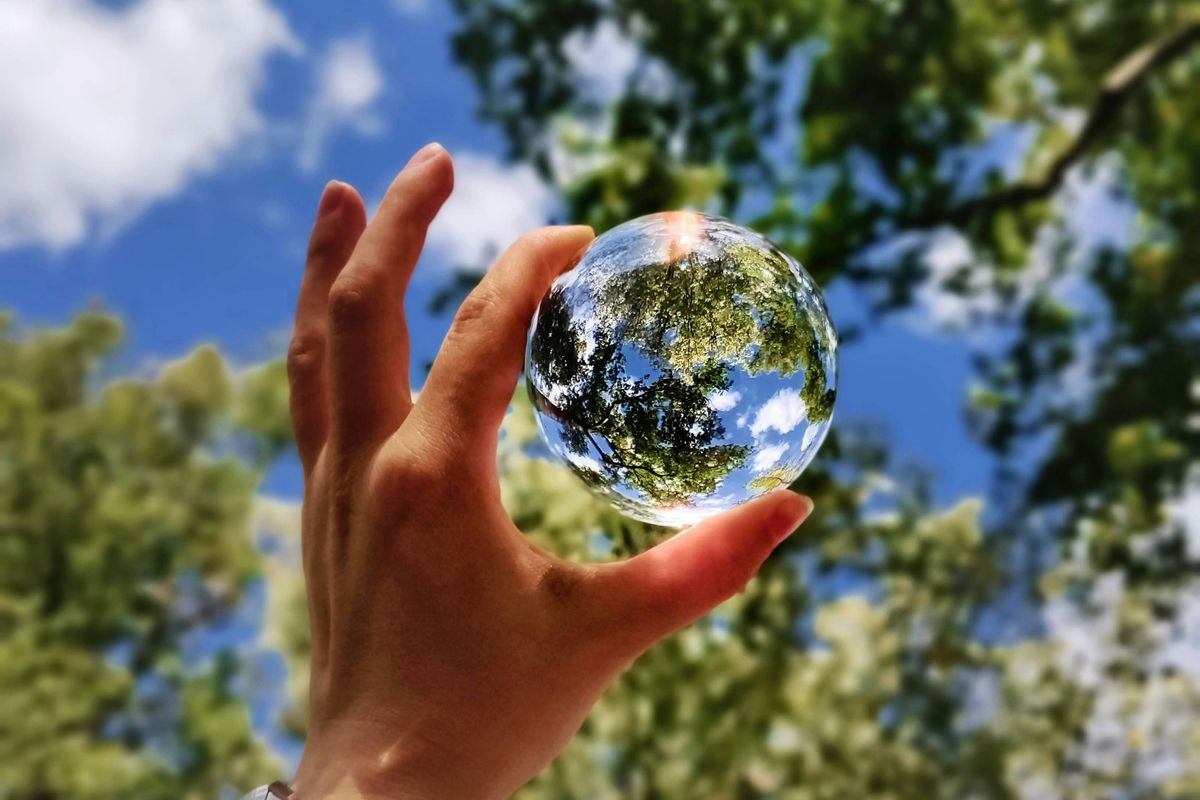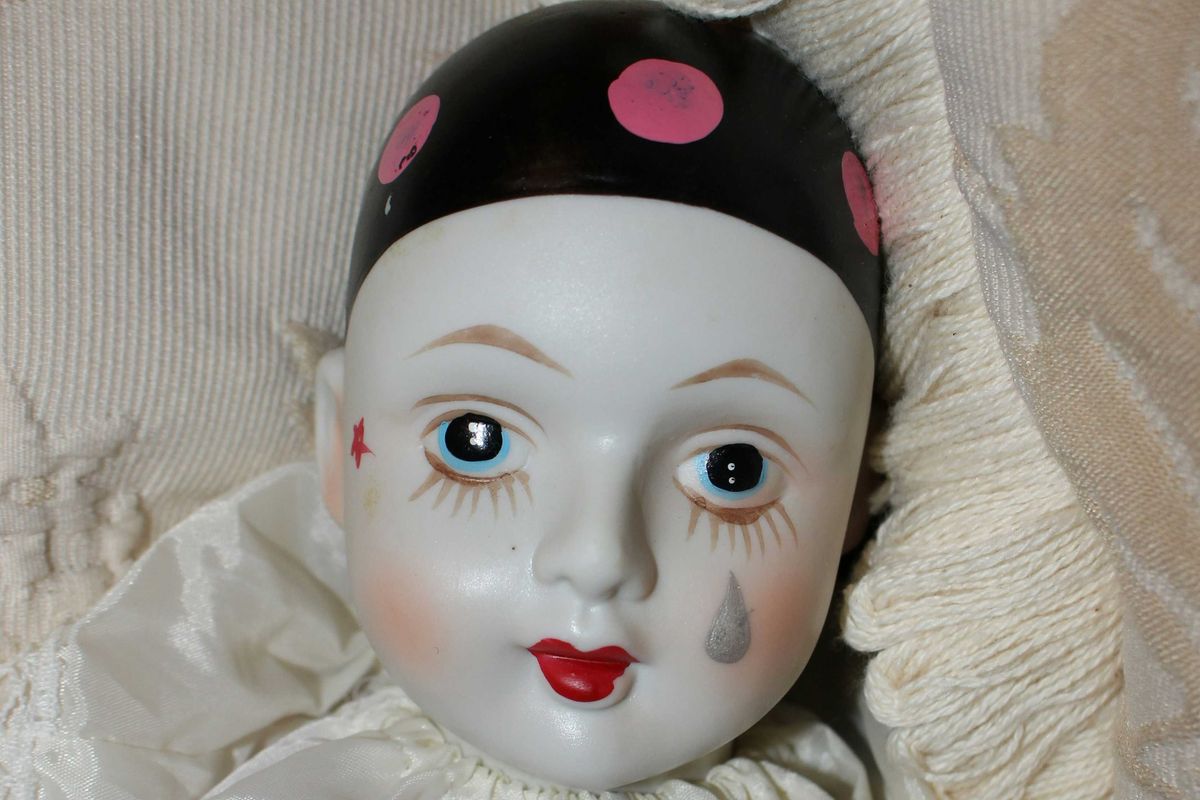See how much the world has physically changed since you were born. Hint: It's more than you realize.

person holding clear glass ball
Sometimes it's hard to see change as it's happening around us.
Sure, you might notice that first fallen leaf of autumn as it crumbles underfoot or the glimmer of a flower bud bursting the snow. But for the most part, we're not actively aware of the effects of time as we go through it. It's only when we look back that we can see difference by comparison.
But there are a lot of other things that have been changing around us while we've been alive, and I'm not just talking about the seasons. Maybe you've come to expect the annual cycles of the weather, but what about the rest of the world? And what's the difference from one winter to the next?
Let's take a look at how the world has changed since you were born — like physically changed, in ways beyond strip malls and landfills.
Are you a Centenarian? (a) Congrats! (b) The average temperature has increased 2 degrees to 3 degrees Fahrenheit since 1915.
It goes from almost all blue — that's -1 degree to 0 degrees Celsius (aka that tens-based temperature measurement used in the rest of the world that makes a lot more sense) — to almost all reds and oranges. It might not seem like the biggest deal, but remember: This is just an average.
But you might not be that old. Let's jump ahead to the mid-1960s — specifically 1965.
See how similar the average temperature in 1965 was to 1915 above? That means most of that change has happened in the last half-century, a fact which probably has very little to do with Dylan going electric.
If you were born a decade later in 1975, things were just starting to heat up.
Things were really gettin' hot around Antarctica and Australia, which I'd much rather attribute to the release of the first AC/DC record than to something ridiculous like carbon emissions.
Generally speaking, people born in 1985 came unto this sizzling Earth with hopes for good luck and a sparkling wit.
There's an entirely logical reason for the world being so much hotter all the sudden, and it's not "Howard the Duck." (Did I mention that I'm turning 30 soon, and you can totally buy me presents? You should do that!)
You 1995ers were the first to face a world without Kurt Cobain (and the climate felt sad about it, too).
For those of us in America, this decade got just a little bit warmer, but probably not enough that you would notice. But there are a lot more red spots all around the globe, which may or may not have had something to do with the conclusion of the OJ Simpson murder trial (I'm thinkin' not, though).
As for those of you born in 2005, I admit: I have a hard time believing you're real and on the Internet right now.
I'm not sure which is scarier: that you never knew a world without Facebook or that you never knew a world that wasn't already covered in the orange temperature zone. Honestly, it's a toss-up.
What about those who were born right on the decade lines? Let's go back to 1980 and check the view from the top.
Back in the day when the Clash was still a band, the "Star Wars" prequels were but a formative inkling in George Lucas's mind, and ... wait did that polar ice cap lose like half its landmass in the last 35 years?!
Then of course there are the children of 1990, who are same age as "The Simpsons" (the show, not the characters).
Compare that 1990 ice cap to the way it looked in 1980, and that's about as different as the bass line from "Under Pressure" and the one from "Ice Ice Baby." Oh hey, remember Vanilla Ice? He was something, huh?
And that brings us back to the turn of the millennium. How 'bout them polar ice caps, 2000 babies?
Oh, I'm sorry — you thought all that melting was evenly spread across three long decades? Yeah, not so much. I guess we were all too busy freaking out about the Y2K bug-that-never-was to even notice.
But now we're gonna party like it's 1999, when the World Atlas map began to drastically change.
On average, the polar ice caps have shrunk by 12% each decade since the '70s, and that melting rate has become exponentially worse since 2007. The image above depicts the actual changes made to the world map between 1999 and 2014, according to the World Atlas.
That's a pretty major change for 15 years, right? But get this:
The maps of the Arctic Circle as seen in 2014 edition of the World Atlas are already inaccurate.
Yeah. It really is that bad.
Ironically, the rate of Arctic melting has essentially snowballed — the factors add up exponentially, and the effects get bigger and bigger and bigger (even as the snow itself disappears). So while yes, there are still winters and it still gets cold, the ecosystem is disastrously out of balance, and it's only getting worse.
But fear not! There's still hope!
Or maybe do fear a little bit, if that's the kind of motivation that you need to make sustainable environmental changes in your life or to urge President Obama to take action before it gets too late. Because we seriously need to do something — and fast.
Here's a little more information, courtesy of National Geographic.



 Each of those arms has its own brain?
Each of those arms has its own brain?
 Homemade granola bars with chocolate chips – perfect for a delicious snack!
Homemade granola bars with chocolate chips – perfect for a delicious snack! Refresh with a healthy green juice boost.
Refresh with a healthy green juice boost. Making fresh orange juice in the kitchen. 🍊
Making fresh orange juice in the kitchen. 🍊 Be careful with supplements.
Be careful with supplements.
 Couple arguing during therapy.via
Couple arguing during therapy.via  Two coworkers debate each other.via
Two coworkers debate each other.via 
 A white porcelain doll with a tear stain. Photo by
A white porcelain doll with a tear stain. Photo by 